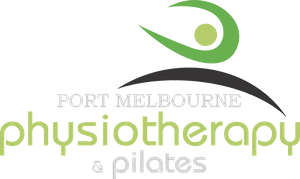Is your diet doing what it’s supposed to?
It’s easy to get swept up into the aspirational health marketing thrown at us every New Year. The advertisements telling us “to take this simple step…”, “ follow this diet…”, “do this workout regime…”, to be the best you you can be!
And the resounding implication is always “you should be better.” Too often these diets end in failure and the absolute joke of it all is that we never blame the product or the regime – we blame ourselves! In this blog post I’m going to take you back to basics. What SHOULD your diet look like, and how you can get there in way that will be sustainable long after an Easter chocolate coma.
Firstly, a ‘healthy diet’, looks different for everyone. Our food preferences, religious beliefs, access to food, and what our family and friends eat all play a part in dictating what we eat day to day. But biologically, the core nutrients we need to support a healthy and balanced diet remain the same. In brief, our diet is made up of macronutrients:
- Carbohydrates
- Protein
- Fat

These contribute the largest proportion of energy to our diet. Other sources of energy include fibre and alcohol. Energy in food is expressed as kilojoules or calories (to get from kJ to calories, divide by 4.2).
What is a “healthy diet”?
A healthy diet is one where we get all three macronutrients (carbohydrates, protein and fat), in a proportion that keeps us satisfied and energetic throughout the day. However, too large a quantity can cause weight gain over time.
None of the macronutrients are “good” or “bad”. They just are. Energy isn’t “good” or “bad”. It’s just energy. The key to getting this balance right is to focus on foods that have nutritional value. This ensures that while we’re consuming energy, we’re also ingesting nutrients that help our bodies work. Fibre is a bit of a superstar in this regard – not only is it important for gut function, but it also helps to make us feel full. Even better, many sources of fibre aren’t very energy dense, which is excellent if you’re trying to reduce your intake.
People come unstuck when they eat too much of the energy dense, nutrient poor foods, and not enough of the opposite. This has two main consequences:
- Firstly, too much energy dense food mean your daily energy intake is likely to be too great. This may lead to weight gain.
- Secondly, a lack of nutrients can result in certain nutrient deficiencies. The result of this can be a weakened immune system. Examples include anaemia from lack of iron or a lower bone density due to limited calcium and vitamin D.
Hence, eating a ‘healthy diet’ is not just about preventing weight gain, it’s also about preventing illness or disease.
So what you can do about it?
My biggest piece of advice is to go slow and set yourself up for success. This means not trying to change everything all at once. Often diet changes fail because people try to make one big change overnight, but don’t have the underlying support and preparation to do it sustainably. The inevitable failure of the diet then leads to a cycle of demotivation and even worse diet choices than before the change.
So when I say something small, I mean something small. If you’re having takeaway more than you’d like, reduce it by one takeaway meal a week for 4 weeks and see how that goes. Not “no takeaway ever again”, just one less meal a week. Little by little make those changes. The same goes for exercise. You don’t have to start working out 2 hours a day 6 days a week from nothing. That will end in tears (and probably a cast of some kind). Start slow – walk 30 mins 2-3 times a week for 4 weeks. Give yourself some flexibility – some weeks if you can do more, great. If not, just do the 2 times.

Keep it time-based:
Notice I’m putting time limits on these as well. Give yourself clear check-in times. When will you reassess that goal? When can you increase it? Your progress will be small at first, but you’ll find with each goal you achieve, your diet gets a little bit healthier. And after 12 small goals…you’ll have made a big difference.
~ Bella Maugeri
Accredited Practising Dietitian (APD)
Learn more about what an APD does here: https://dietitiansaustralia.org.au/
You may find these other nutrition blogs interesting:

